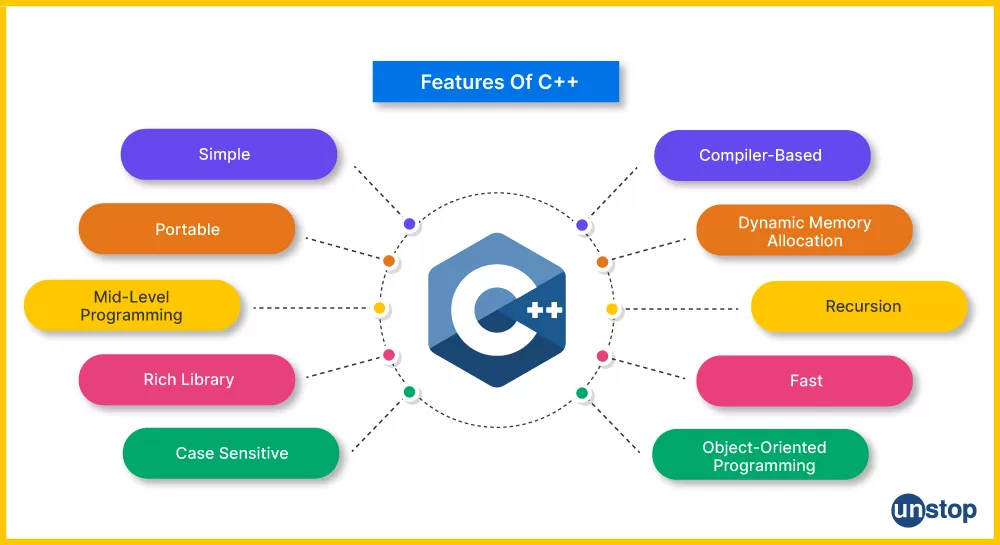What is C++ programming language
is among the most widely used programming languages today. So, just what is the C++ programming language? Well, basically it’s just an extension of the C programming language with the added feature of object-oriented programming. That is, C++ allows programmers to program anything for any number of purposes, from system and software development through game programming and beyond.
Why is the C++ programming language special? It’s all known for its efficiency and speed. Due to its capacity for directly addressing hardware and memory, C++ usually stands as the most-preferred language for software applications where speed comes first, e.g., video games and operating systems.
You may ask, what is C++ used as a programming language? The reality is that C++ is very flexible and can handle numerous environments, from embedded systems to desktop applications and high-level computing. It provides developers complete access to system resources, and as such it’s ideal to use in domains where performance is crucial.
can you also visits here digital marketing in India
and also https://www.instagram.com/nitin_sargar04/?hl=en
In short, what is C++ programming language? It is an efficient and high-performance programming language that combines high-level programming with low-level facilities in a way that application developers can create rapid and reliable application programs.

Here are these major traits in C++ programming language:
- Object-Oriented Programming:
C++ is the very definition of Object-Oriented Programming because it constructs classes and objects so that one can organize and structure the code; that is, it features inheritance, polymorphism, encapsulation, and abstraction.
- Low-Level Manipulation:
A pointer in C++ is just like any other programming languages; it gives direct use of all memory and hardware using the methods of manipulating that one can. It is because of this manipulation that C++ is termed as low-level language where the developer gets into writing performance-critical efficient and very effective code for that purpose.
- Rich Standard Library:
C++ has what is now called a rich library, which contains nearly 100 functions and templates for any housework or work that is actively performed during building software-from I-O functions to algorithms and data structure functions. The standard template library (STL) is a collection of collection template classes designed specifically for efficient data storage and manipulation.
- Portability:
Portability in C++ refers to the same code being compiled easily-or may even without modifications-on various platforms and can run on very different platforms. There’s that edge that C++ has as language writing cross-platform application.
- Performing and Efficient:
Near-definition by high-performance C++. Much efficiency in resource management is given while allowing the developer fairly low-level constructs manipulated closer to machine code in fast application building.
- Memory Management:
C++ allows a user not only to manage memory allocation or freeing but also entails user-defined Dynamic Memory Management, whereby one can: – allocate memory explicitly using new operator and – free memory using delete operator.
- Multi-Paradigm Language:
C++ can also be viewed as multi-paradigm development since it incorporates the procedural and the object-oriented paradigm, thus providing also generic programming like in the case of templates.
- Function Overloading and Operator Overloading:
Function-overloading and operator-engagement are the cases where these functions and operators will behave differently depending either on type or the number of arguments given. It makes coding look cleaner and more expressive.
- Exception Handling:
C++ is a strongly exception-handled language, which incidentally provides a built-in well-worked-out run-time error-handling mechanism; thus, making recovery from errors quite elegant. The keywords designated for exception handling are try, catch, and throw.
- Compatibility with C:
C++ language has given backward compatibility with C. C++ is known to be a superset or extension of C; thus, any feature of C will be available in C++. Hence this backward compatibility provides an edge whereby C code can be used in C++ programs.
